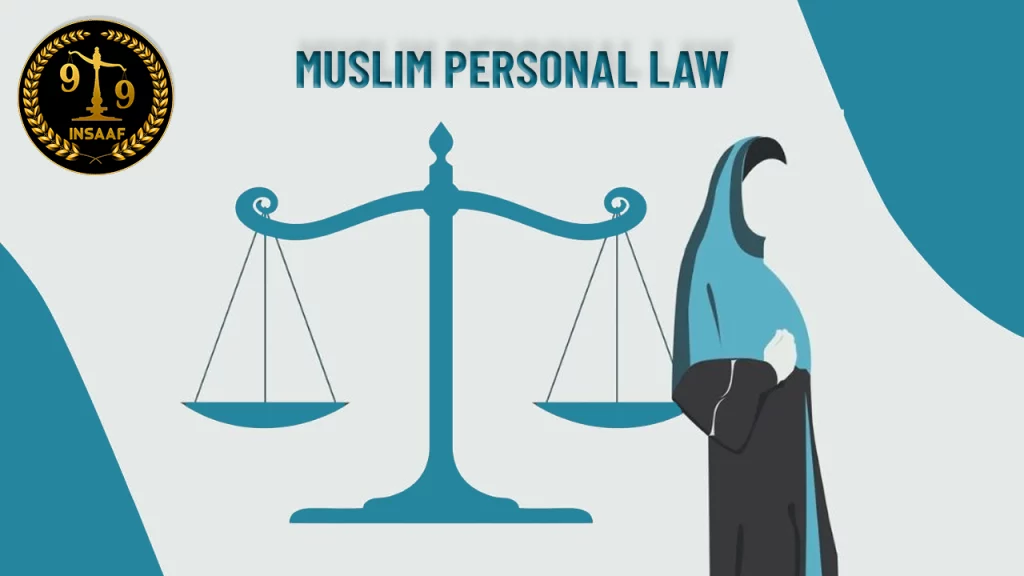

Online Legal Advice from Insaaf99® Online Lawyer Consultation in India


Online Legal Advice from Insaaf99® Online Lawyer Consultation in India

In India, numerous aspects of the Muslim community are governed by Muslim personal law. These aspects include marriage, divorce, adoption, succession, and charity. In the majority of nations in which Islam is the official religion, Sharia law serves as the basis for the legal system. The interpretation of Islamic law can differ between Sunni and Shia schools, which can have an effect on how the law is applied.
Sharia law, also known as Muslim law, is based on sacred Islamic sources. The primary source is the Quran, followed by Hadith (the sayings of the Prophet Muhammad). Legal decisions are influenced by Ijma (consensus) and Qiyas (analogical reasoning). Ijtihad is used by qualified scholars to address novel issues, whereas Fatwas are legal opinions. In Muslim communities, its application is influenced by various schools of thought and cultural variations.
According to the doctrines of the Sunni school of thought, Islamic law is derived from four different authorities, which are as follows:
The Shia legal tradition considers the Quran, the Hadith, and the dictums of the Imams to be the highest legal authority. They did not agree with the Sunni viewpoint that Quiyas should be considered a respectable source of law and therefore they rejected this viewpoint. In addition, members of the Shia sect do not subscribe to the Haadi collections that originate from families that are not connected to the prophet by a direct line of descent. As a result, the only compilations that they accept as the most authentic of all collections are AL-Kafi and Tahdhib UL-Abham.
The Shariat Act of 1937, the Wakf Act of 1954, and the Muslim Marriage Dissolution Act are only a few of the landmark pieces of legislation that together form the basis for Muslim personal law in India. The scope of these Acts is extensive, ranging from issues of inheritance and divorce to those of property management.
Mahr and Hiba are two important concepts in Muslim law. Mahr is a sum of money or other valuables that a husband is expected to give to his wife upon marriage. Hiba is a gift that can be made of any kind of property.
Hiba is a way for a Muslim to show their generosity and to express their love for another person. It can be used to transfer property to a family member, friend, or even a stranger.
Both Mahr and Hiba serve to protect the rights of women and to promote generosity and love among Muslims.
Here are some additional information about Mahr and Hiba:
Islamic law governs inheritance and ensures that the wife receives a specific share based on the presence of offspring. The spouse inherits a portion of the wife's property upon her demise, while daughters receive equal shares and the mother may inherit a portion of the property under certain circumstances.

In both Sunni and Shia sects, the father is recognized as the natural guardian of a minor child under Muslim law. In the absence of testamentary guardians, the court may appoint statutory guardians for the child's welfare. In determining the child's guardian, the court may consider the child's religion and personal law.
Understanding Indian Muslim Personal Law demands understanding its complicated interaction with varied religious views and customary practices. Though Muslim law has changed, it still affects Indian Muslims.
Insaaf99 is an online legal consultation firm that specializes in providing assistance and guidance in matters pertaining to Muslim Personal Law. The platform offers valuable support to individuals seeking advice and solutions regarding marriage, divorce, inheritance, guardianship, and other legal aspects governed by Islamic law.
Through its team of experienced and knowledgeable legal experts, Insaaf99 provides personalized and reliable consultations to clients, ensuring they understand their rights and options under Muslim Personal Law. This online service is especially beneficial for Muslim individuals who may face unique challenges or complexities within the framework of their religious laws.
Insaaf99 offers a convenient and accessible platform for clients to seek expert advice and clarification on legal matters, empowering them to make informed decisions and navigate their legal issues effectively. By bridging the gap between legal expertise and those in need, Insaaf99 contributes significantly to promoting justice and ensuring equitable outcomes in cases related to Muslim Personal Law.
Read More